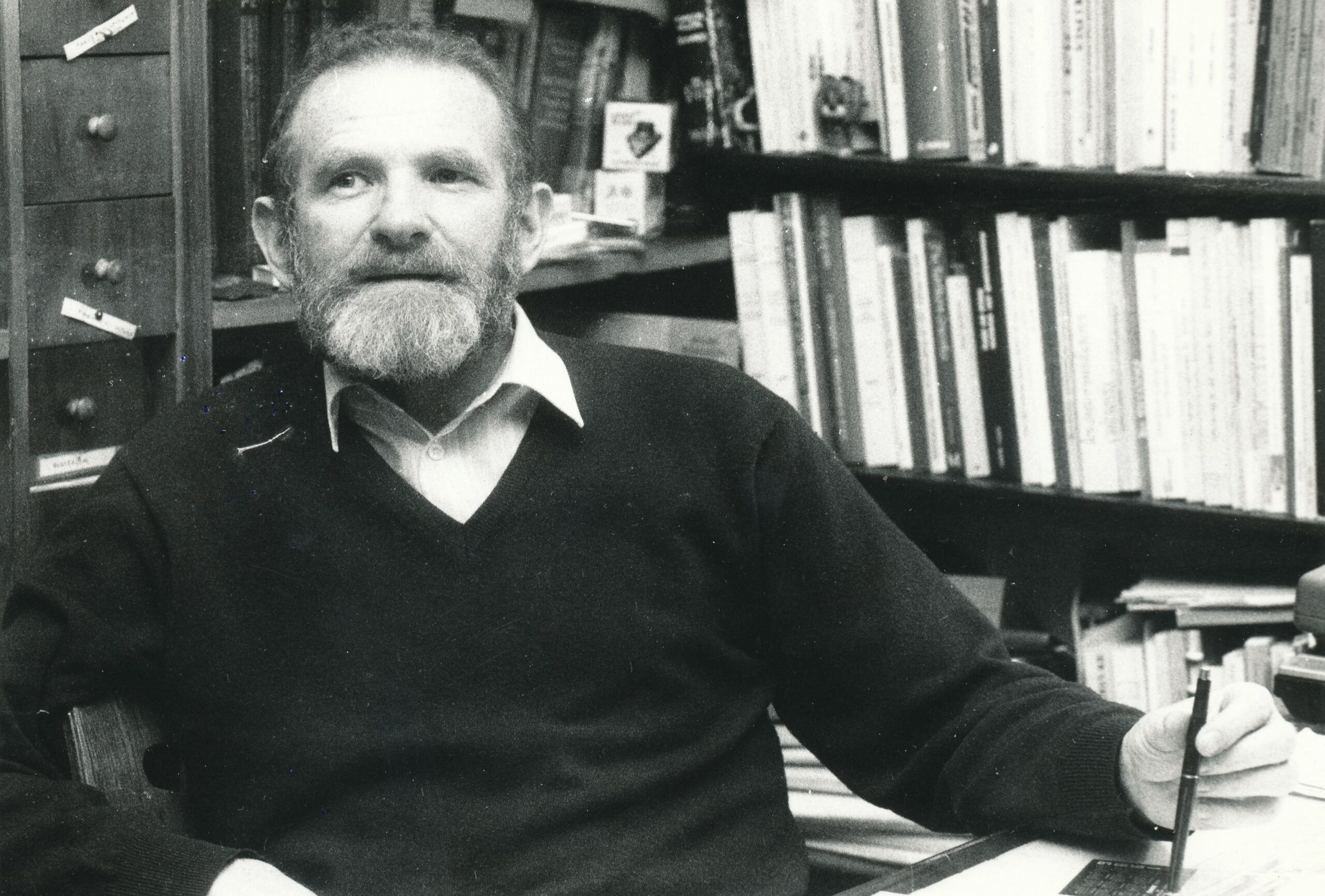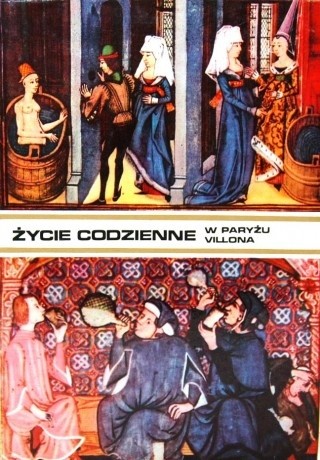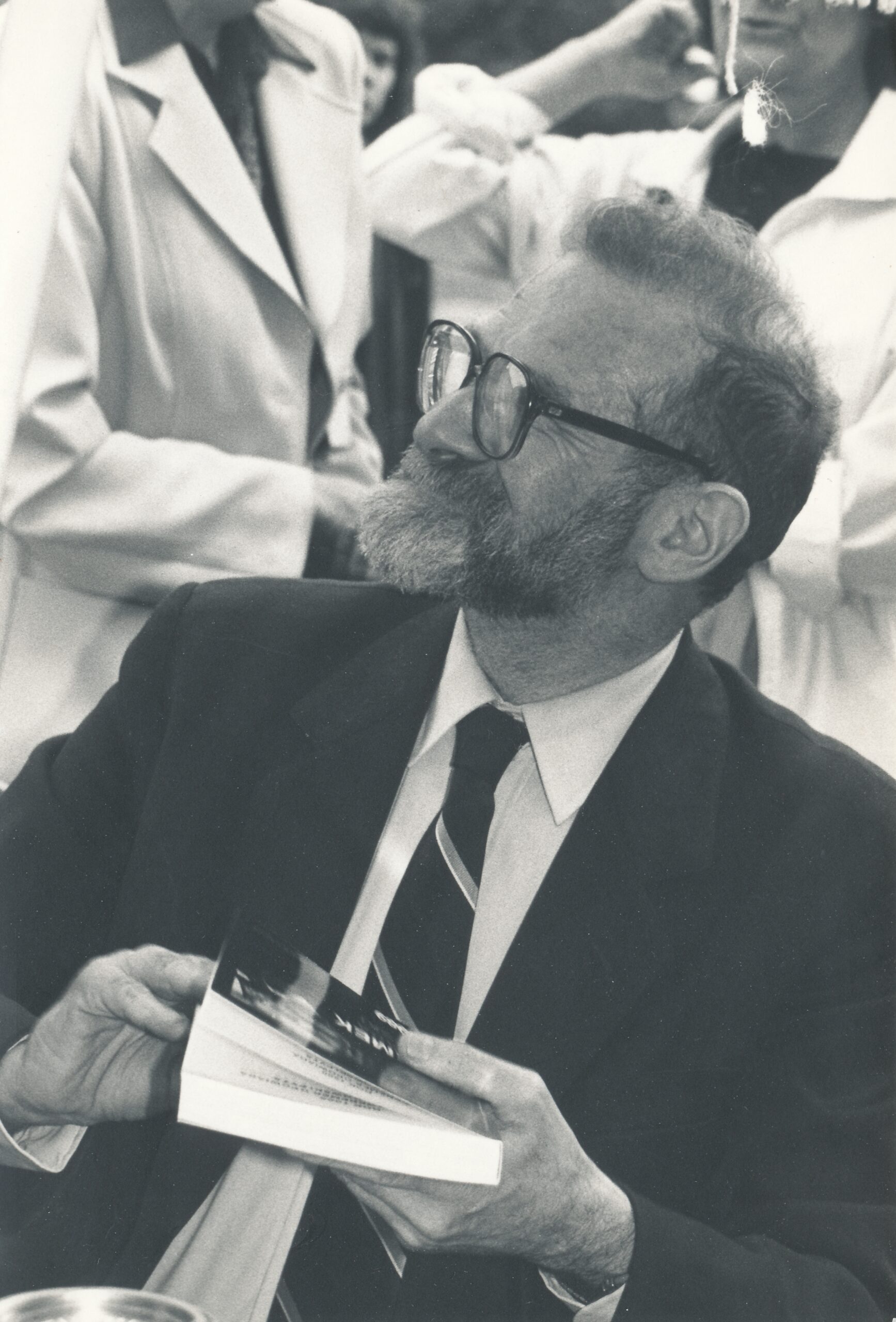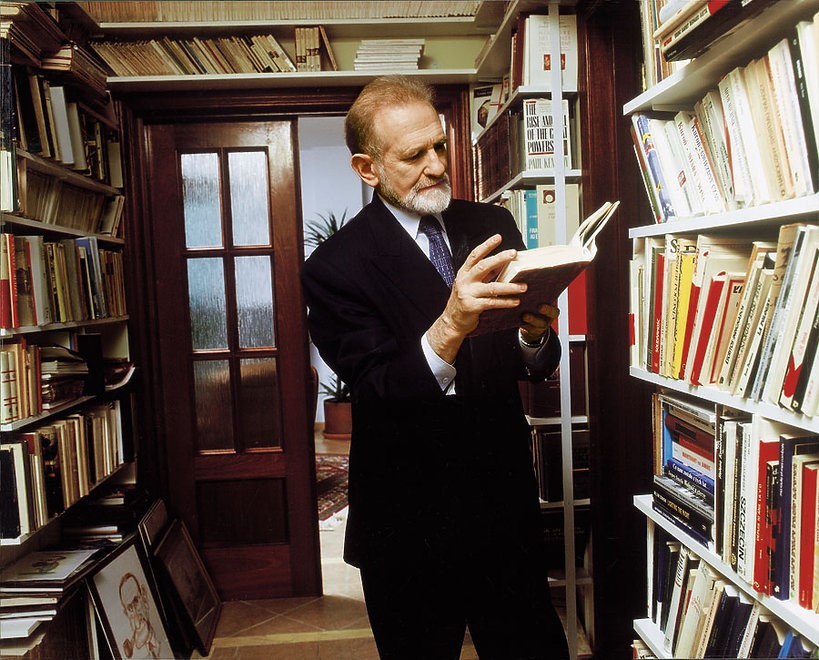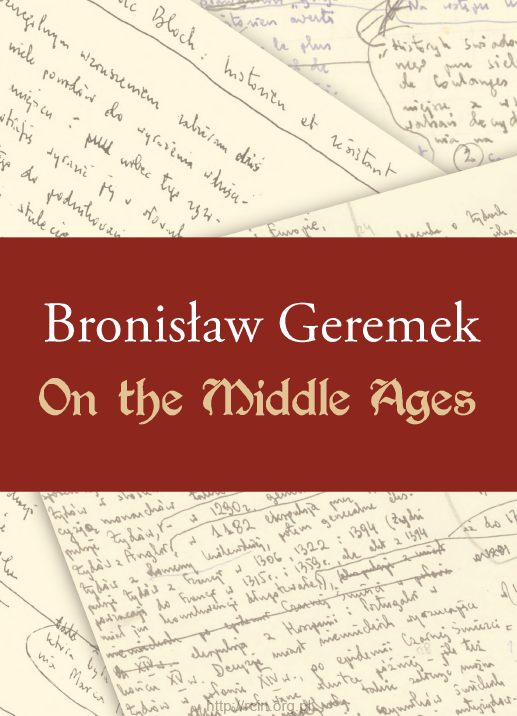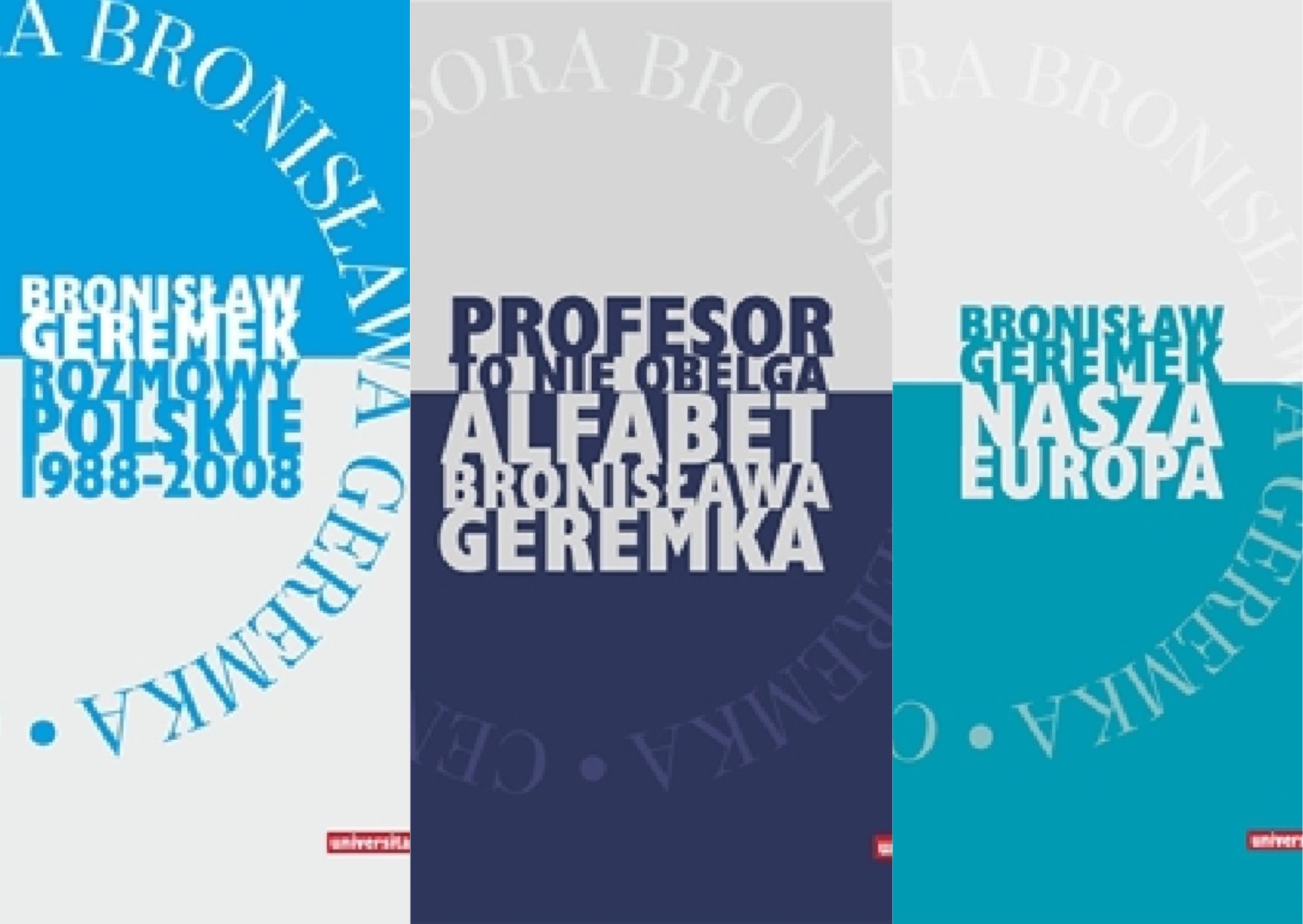Books
The scientific legacy of B. Geremek is arranged in two main cycles of studies. The first of these includes books: „Najemna siła robocza w rzemiośle Paryża XIII-XIV wieku” (1962, Hired labour in artists’ studios in Paris in the 13–14th centuries), „Ludzie marginesu w średniowiecznym Paryżu: XIV -XV wiek” (1971, The Margins of Society in Late Medieval Paris, transl. J. Birrell Cambridge, 1987) as well as „Życie codzienne w Paryżu Franciszka Villona” (1972, Everyday Life in Paris of François Villon). The second series begins with a book written for the Parisian series Archives „Inutiles au Monde. Vagabonds et marginaux en Europę aux XIVe-XVIe siècle” (A picture of vagrants and paupers in 15th–16th century European literature, 1980) and also includes later works: „Litość i szubienica. Dzieje nędzy i miłosierdzia” (1989, Mercy and the gallows. The history of penury and charity) and “Świat opery żebraczej. Obraz włóczęgów i nędzarzy w literaturach europejskich XV-XVII wieku” (1989, The world of the “beggar’s opera.”). Two collective works also followed under his editorship: „Kultura elitarna a kultura masowa w Polsce późnego średniowiecza” (1978, Elite culture versus mass culture in late medieval Poland) and „Kultura polski średniowiecznej XIV-XV wieku” (1997, Culture of medieval Poland in the 14th-15th centuries). In 1995, his book „Wspólne pasje” (Common Passions) was published, co-authored with French historian Georges Duby.
In 2012, the Institute of History of the Polish Academy of Sciences published an anthology of texts “On the Middle Ages” selected from Bronisław Geremek’s scholarly output by Hanna Zaremska and Agnieszka Niegowska containing over 30 texts divided into three parts: Historian about himself, historians and history, Social margin and exclusion, Cultural history.
He authored and co-authored following books on Polish politics after 1989 and European integration: „Rok 1989. Geremek opowiada, Żakowski pyta” (1989: Geremek tells, Żakowski asks”, 1990), “The Democracy in Europe” (with Ralf Dahrendorff and François Furet, 1993), „The Common Roots of Europe” (Cambridge 1996), “Szansa i Zagrożenie. Polityka i dyplomacja w rodzinnej Europie” (Opportunity and Threat. Politics and Diplomacy in a Unified Europe, with Dorotą Maciejewską, 2004), “Visions of Europe” (with Robert Picht, 2007), and an extended interview by Juan Carlos Vidal “Geremek/Vidal. Conversations” (2015).
In 2010, the book “Bronisław Geremek – Father of Polish Liberalism” (Bronisław Geremek – Ojciec polskiego liberalizmu) was published by Liberté!, which constitutes a collection of essays on Bronisław Geremek as a politician, historian, diplomat and human being authored by his colleagues, friends and politicians, including Maurice Aymard, Norman Davis, Jan Lityński, Janusz Onyszkiewicz, Henryk Samsonowicz and Jacek Żakowski.
Between 2010 and 2016, on the initiative of the Geremek Foundation, following collections of speeches, lectures and interviews by Prof. B. Geremek were published: “Bronisław Geremek. A Voice in Europe” (Universitas Publishing House, 2010), “Bronisław Geremek. Our Europe” (Universitas Publishing House, 2012), “Bronisław Geremek’s Alphabet” (Universitas Publishing House, 2013), “Bronisław Geremek. Conversations on Poland 1988-2008” (Universitas Publishing House, 2015), “Bronisław Geremek. Effectiveness and the raison d’état. From the portfolio of the Minister of Foreign Affairs of Poland” (DIALOG 2016).
